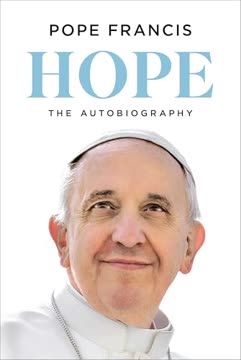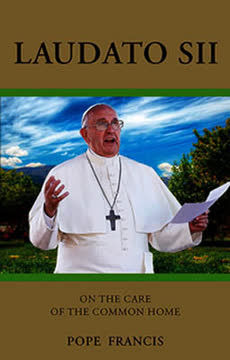Key Takeaways
1. Hope is a dynamic journey, not passive waiting, fueled by memory and dreams.
Hope is above all the virtue of movement and the engine of change: It’s the tension that brings together memory and utopia to truly build the dreams that await us.
Hope drives action. Hope isn't merely waiting for things to get better; it's an active force that propels us forward. It connects our past experiences (memory) with our aspirations for the future (utopia) to build the world we dream of. This dynamic tension prevents stagnation and fuels personal and collective change.
Memory sustains hope. Our personal and collective memories, even painful ones, are embers from which hope can be rekindled. Remembering where we come from, the struggles overcome, and the people who shaped us provides the strength and perspective needed to face present challenges and continue dreaming, even if dreams fade and need to be reimagined.
Christian hope blossoms. For Christians, hope is grounded in the certainty that God is present in every moment, past, present, and future. This faith assures that all things are born to blossom, promising an eternal springtime where God's presence is ultimately recognized in everything.
2. The immigrant experience reveals shared humanity and the dignity of the poor.
Those who emigrated often faced all kinds of hardships and sacrifices to get on board.
Migration is a timeless story. The author's own family history, narrowly escaping the SS Principessa Mafalda disaster and migrating from Italy to Argentina, highlights the universal struggle and hope inherent in the immigrant journey. Millions have left their homes seeking a better life, facing poverty, exploitation, and the harsh reality of starting anew in unfamiliar lands.
Shared struggles and resilience. Stories of migrants arriving at places like the Hotel de Inmigrantes in Buenos Aires, facing squalor and uncertainty, echo the experiences of migrants today. Despite immense hardship, these individuals brought strength, courage, perseverance, and faith, contributing their talents to build new societies.
Solidarity is essential. Recognizing our shared history as migrants calls for solidarity with those seeking refuge today. Indifference to the suffering of migrants, symbolized by tragedies at sea or hostile architectures, is a denial of our common humanity and a failure to answer God's question to Cain: "What have you done?"
3. War is a senseless folly, a source of injustice, and a betrayal of fraternity.
War is folly!
War destroys everything. Drawing from his grandfather's WWI experiences and the stories of WWII immigrants, the author emphasizes that war is an absurd, alienating, and ultimately useless massacre. It destroys lives, families, and the bond of fraternity, leaving behind only a gruesome balance sheet of death, injury, and injustice.
Injustice fuels conflict. Wars are often driven by economic interests, thirst for power, and mad geopolitical plans, benefiting merchants of death while innocent civilians, especially the vulnerable, pay the highest price. The rush to armaments and the proliferation of weapons are symptoms of deep injustice and a betrayal of human dignity.
Peace requires courage. True peace is not achieved through violence or aggression but through dialogue, negotiation, and reconciliation. It requires rejecting the "What does it matter to me?" mentality and cultivating humility, generosity, and kindness, starting in our own hearts and communities.
4. Encountering others, especially the marginalized, is essential for human and Christian growth.
Being close, living in true harmony with others, means being unafraid even to go into their night.
Encounter enriches life. The author's childhood in the diverse Flores barrio, with friends from various ethnic and religious backgrounds (Jewish, Muslim), and encounters with people from different walks of life (prostitutes, laborers, artists), shaped his understanding of humanity. This "culture of encounter" requires openness, respect, and a willingness to receive from others.
Margins reveal truth. Reality, especially human and social reality, is often better understood from the margins than from the center. Engaging with those on the fringes – the poor, the sick, the outcasts – reveals the true face of humanity and the presence of God, challenging prejudices and fostering compassion.
Service is encounter. True service, like that of the "cura villeros" in Buenos Aires' shantytowns or the nuns who cared for the sick and poor, is always an encounter. It's about walking with people, sharing their lives, and learning from their wisdom and resilience, recognizing that we are often the ones who receive more than we give.
5. Mercy is God's core identity and the path for sinners, offering forgiveness and transformation.
God has looked upon me with mercy and has forgiven me.
God is mercy. The author's personal motto, "miserando atque eligendo" (mercying and choosing), reflects his profound conviction that God's primary attribute is mercy. Like the story of Matthew the tax collector, God looks upon sinners with compassion, choosing and transforming them despite their failings.
Sin is a poverty to be redeemed. Recognizing oneself as a sinner is the first step towards receiving God's mercy. Unlike corruption, which locks the door from within and denies blame, sin leaves a "narrow chink" for God to enter and heal. Confession is a vital practice for experiencing this ongoing mercy.
Forgiveness is transformative. God forgives with affection, not just by decree. This divine forgiveness empowers us to forgive others, breaking cycles of resentment and bitterness. The power of forgiveness, both given and received, is essential for personal healing and the renewal of relationships.
6. The Church must be an open, maternal community for all, fighting indifference and clericalism.
The Church, a house for everyone, not a small chapel that can hold just a group of the select few.
The Church is God's people. The Church is not a rigid hierarchy or an exclusive club, but the holy faithful people of God journeying through history. It is a mother who welcomes and gathers all her children, including those in irregular situations or from marginalized groups, without exception.
Synodality is the path. The Church must be synodal, walking together, listening to one another and to the Spirit. This means overcoming clericalism, which is a perversion that replaces the Gospel with ideology, and ensuring that the voices and contributions of all, especially the laity and women, are valued and integrated at all levels.
Go out to the peripheries. A Church that is self-referential becomes sick. It must constantly go out of itself to the existential and geographical peripheries, bringing the "sweet and comforting joy of evangelizing" to all, especially the poor and suffering, rather than clinging to comfort or outdated traditions.
7. Caring for our common home and fighting global injustices are urgent moral imperatives.
To restore dignity to those excluded from society, to fight poverty and exploitation, to care for the environment, and to protect our own lives are needs that certainly cannot be separated...
All is interconnected. The pandemic and the climate crisis have starkly revealed our interdependence and the fragility of our planet. Environmental degradation, poverty, exploitation, and health disasters are not separate issues but facets of a single, complex socio-environmental crisis demanding an integrated approach.
Indifference is criminal. Globalized indifference allows massacres, exploitation, and environmental destruction to continue. Ignoring the suffering of others, whether migrants, victims of war, or those harmed by pollution, is a cowardly act that harms ourselves and our common home.
Peace requires justice. True peace is inseparable from justice. It requires fighting the root causes of conflict, which often lie in economic systems that kill and exclude, and in the hoarding of resources and power by a few. Investing in peace, justice, and care for creation is the only path to prevent humanity's self-destruction.
8. Humor, joy, and humility are vital for navigating life's difficulties and connecting with others.
Humor is an affirmation of dignity, a declaration of man’s superiority to all that befalls him.
Joy is a Christian trait. Despite life's inevitable sadnesses, joy is a fundamental aspect of Christian life. It's not about denying problems but about possessing an inner strength and perspective that allows us to face difficulties with fortitude and even a smile.
Humor is wisdom. Humor, irony, and self-mockery are powerful tools for maintaining perspective, overcoming narcissism, and connecting with others. They break down barriers and reveal a healthy humility, reminding us that perfection is unattainable and that we shouldn't take ourselves too seriously.
Children teach us joy. Children, with their spontaneity, enthusiasm, and capacity for laughter, are models of the joy and trust that adults often lose. Reclaiming a childlike ability to smile and engage with the world is essential for human wholeness and spiritual vitality.
9. Christian hope is an invincible certainty, rooted in God's unwavering love and presence.
Hope never disappoints.
Hope is not optimism. Unlike optimism, which can be betrayed, Christian hope is an unshakeable certainty. It is the conviction that God loves us unconditionally, is always with us, and that we are destined for eternal life and happiness, regardless of present suffering or setbacks.
Hope is an anchor. Like the anchor depicted by early Christians, hope provides stability and security amidst life's storms. It is a powerful force that sustains us, prevents us from drowning in despair, and encourages us to persevere even when faced with immense difficulties.
Hope carries us forward. Hope is the "little girl" who carries faith and charity, seeing not just what is, but what will be. It is a vital, active virtue that propels us forward, enabling us to live courageously in the present while looking towards the future with confidence in God's promises.
10. Life is an adventure demanding courage, risk, and a commitment to building peace and fraternity.
Life isn’t handed to us like an opera libretto: It is an adventure into which we must throw ourselves.
Embrace the journey. Life is not a predetermined script but an adventure that requires active participation and a willingness to take risks. Failures and difficulties are part of the process, but they should not paralyze us; instead, they offer lessons and opportunities for growth.
Build bridges, not walls. True progress and security come from building relationships, fostering fraternity, and working together, not from isolation, suspicion, or conflict. The courage of reconciliation must replace the cowardice of arms.
Be artisans of change. We are called to be active participants in shaping history, not passive observers. This means fighting injustice, caring for creation, and sowing seeds of peace and hope, believing that even small gestures can contribute to a more just and fraternal world.
Last updated:
FAQ
What is Hope: The Autobiography by Pope Francis about?
- Life journey and faith: The autobiography traces Pope Francis’s life from his family’s migration to Argentina through his priesthood and papacy, focusing on hope as a guiding force.
- Themes of hope and humanity: It explores hope as an active virtue, not naive optimism, and discusses how faith, suffering, and service shape his worldview.
- Social and global issues: The book addresses major concerns like poverty, war, migration, and environmental crises, showing how these shaped his mission.
- Personal and theological reflections: Pope Francis weaves personal stories with theological insights, offering a vision for a Church rooted in mercy and inclusion.
Why should I read Hope: The Autobiography by Pope Francis?
- Intimate look at a global leader: Readers gain rare insight into the motivations, struggles, and hopes of the first Latin American pope.
- Inspiration through hope: The book offers a powerful message about embracing hope, faith, and compassion in the face of adversity.
- Context for contemporary issues: It provides a moral and spiritual framework for understanding and responding to global challenges like war, migration, and climate change.
- Rich cultural and theological content: Those interested in theology, philosophy, and history will find valuable reflections and intellectual influences.
What are the key takeaways from Hope: The Autobiography by Pope Francis?
- Hope as a sustaining virtue: Hope is depicted as humble yet powerful, sustaining faith and love through life’s trials.
- Church’s mission of inclusion: The Church is called to be open, merciful, and welcoming, especially to the poor and marginalized.
- Condemnation of war and injustice: War is denounced as senseless and criminal, with a call for peace, justice, and disarmament.
- Importance of education and dialogue: Education and open dialogue are essential for personal growth, reform, and overcoming division.
How does Pope Francis define and describe hope in Hope: The Autobiography?
- Hope as a humble child: Drawing from Charles Péguy, hope is likened to a “little girl” who quietly sustains faith and charity.
- Hope as medicine and anchor: Scientifically, hope is a survival mechanism; symbolically, it is an anchor providing stability amid life’s storms.
- Hope beyond optimism: Unlike optimism, hope is “invincible” and rooted in the certainty of God’s love and salvation.
- Hope’s challenges: The temptation to despair is real, but hope must be nurtured and fought for as a supreme value.
What is Pope Francis’s vision for the Church in Hope: The Autobiography?
- Mother and shepherdess: The Church should be nurturing and merciful, caring for all, especially the marginalized.
- Inclusive and synodal: Pope Francis advocates for a Church that walks together in dialogue, avoiding clericalism and exclusivity.
- Cultural richness: He values popular spirituality and cultural diversity as sources of holiness and transformation.
- Women’s roles: The Church must recognize and enhance women’s authority and participation in leadership and formation.
How does Hope: The Autobiography by Pope Francis address war, peace, and justice?
- War as senseless tragedy: War is condemned as an “incomprehensible” and “useless massacre,” a crime against humanity.
- Peace as a prerequisite: Peace is essential for justice and human flourishing, requiring disarmament and dialogue.
- Scandal of peace: True peace is often seen as inconvenient, but Pope Francis insists on reconciliation and forgiveness.
- Concrete actions: The Church engages in diplomacy, humanitarian aid, and symbolic gestures to promote fraternity and dignity.
How does Pope Francis describe his family’s migration experience in Hope: The Autobiography?
- Narrow escape from tragedy: His family narrowly avoided the sinking of the SS Principessa Mafalda, an event he attributes to Divine Providence.
- Hardships of migration: They faced poverty and challenges upon arriving in Argentina, shaping his empathy for migrants.
- Cultural roots and identity: Maintaining their Piedmontese traditions, his family’s story underscores the importance of roots and solidarity.
- Foundation for hope: The migration experience is central to his understanding of hope, resilience, and community.
What role did war and political turmoil play in Pope Francis’s early life, according to Hope: The Autobiography?
- Family experiences of war: His grandfather’s service in World War I and the scars of conflict deeply influenced his family.
- Political repression: The rise of fascism in Italy and Peronism in Argentina affected his family and community, fostering anti-fascist values.
- Reflection on peace: Pope Francis condemns war as folly and advocates for humility and peace-building.
- Personal engagement: He shares stories of visiting war memorials and supporting disarmament efforts.
How does Pope Francis explain the “culture of encounter” in Hope: The Autobiography?
- Definition and importance: The culture of encounter means stepping out of oneself to engage respectfully and openly with others.
- Social and spiritual dimension: It fosters dialogue, understanding, and peace, countering prejudice and division.
- Practical application: Emphasizing humility and kindness, Pope Francis encourages building bridges in daily life.
- Christian foundation: The concept is rooted in Jesus’s teachings and the need for community and solidarity.
What insights does Hope: The Autobiography provide about Pope Francis’s views on mercy and sin?
- Self-identification as a sinner: Pope Francis openly calls himself “a sinner whom the Lord has looked upon with mercy,” emphasizing humility.
- God’s faithfulness: He highlights that God’s mercy is constant and transformative, offering hope to all.
- Mercy over ideology: Faith should be rooted in mercy, not rigid doctrine, and requires openness to God’s newness.
- Foundation for renewal: Mercy is essential for personal and communal transformation.
How does Pope Francis view women and their role in the Church in Hope: The Autobiography?
- Church as female and inclusive: The Church is described as the bride of Christ, with women’s voices and authority needing greater recognition.
- Need to “demasculinize” the Church: Pope Francis calls for enhancing the Marian principle and valuing women’s unique contributions.
- Women in leadership: He urges fuller participation of women in leadership, formation, and decision-making roles.
- Condemnation of violence: The pope denounces violence and discrimination against women as a scandal against the Gospel.
What are the best quotes from Hope: The Autobiography by Pope Francis and what do they mean?
- On hope: “Hope is a little girl, nothing at all… She alone, carrying the others.” This metaphor highlights hope’s quiet but enduring strength.
- On war: “War is always incomprehensible. War is always useless massacre.” This bluntly condemns war as senseless and destructive.
- On the Church: “The Church is female—it is not male… Mary is more important than Peter.” This emphasizes the Church’s nurturing identity and the need to value women.
- On mercy and tenderness: “Tenderness means nothing other than this: It means love that becomes close and concrete.” This defines Christian love as active and compassionate.
- On the future: “The best wine has yet to be served.” This quote expresses hope and trust in God’s ongoing work and promise.
Review Summary
Hope is a moving autobiography by Pope Francis that offers insights into his life, beliefs, and vision for the Church and world. Readers appreciate his humility, progressive views, and emphasis on mercy and inclusion. The book covers his upbringing, experiences as a priest, and key issues like climate change, poverty, and social justice. Many find his message inspiring and relevant, regardless of faith. While some critics note editing issues, most reviewers highly recommend the book for its wisdom, humor, and hopeful outlook.
Similar Books
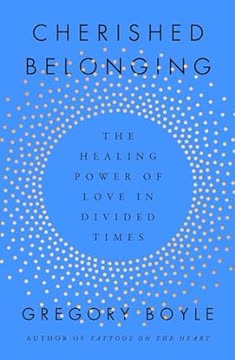
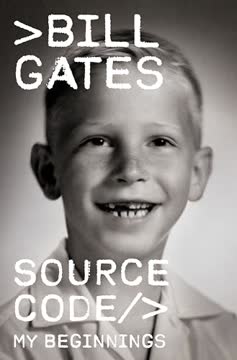
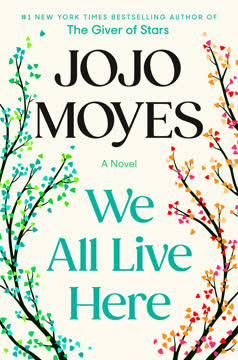

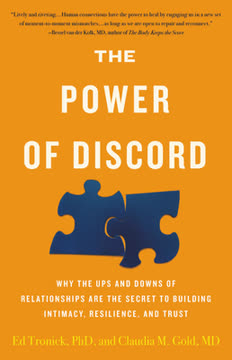
Download PDF
Download EPUB
.epub digital book format is ideal for reading ebooks on phones, tablets, and e-readers.
